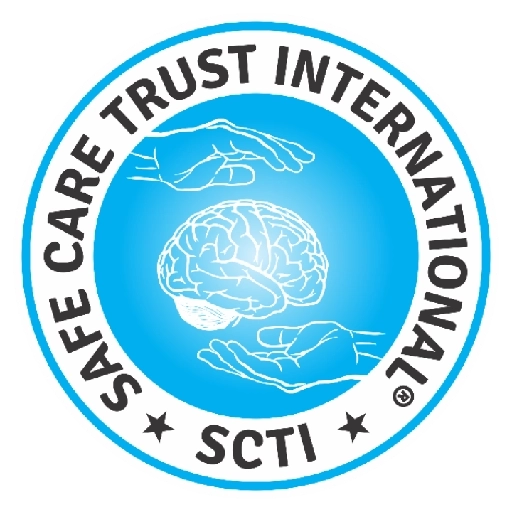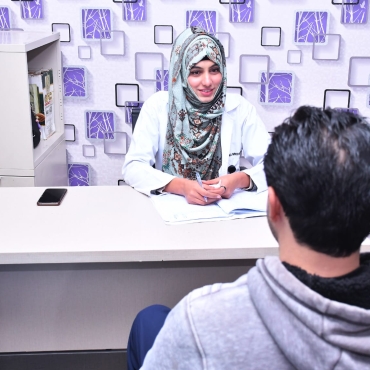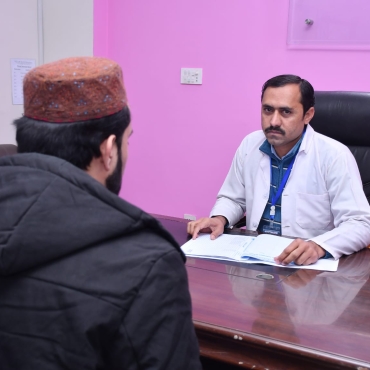Many people diagnosed with mental illness achieve strength and recovery through participating in individual or group treatment. There are many different treatment options available. There is no treatment that works for everyone – individuals can choose the treatment, or combination of treatments, that works best.
Psychotherapy
Psychotherapy is the therapeutic treatment of mental illness provided by a trained mental health professional. Psychotherapy explores thoughts, feelings, and behaviors, and seeks to improve an individual’s well-being. Psychotherapy paired with medication is the most effective way to promote recovery. Examples include: Cognitive Behavioral Therapy, Exposure Therapy, Dialectical Behavior Therapy, etc.
Medication
Medication does not outright cure mental illness. However, it may help with the management of symptoms. Medication paired with psychotherapy is the most effective way to promote recovery.
Researchers believe that the symptoms of mental illness come from chemical imbalances in a person’s brain. A medication works on these imbalances to reduce your symptoms, or sometimes, to relieve them completely.
It is important to know the benefits of prescribed medications, as well as their potential side effects, and to talk to your doctor about any concerns that you may have. As you consider your options, it may help to know some basic facts about medication.
- Medications are not cures. Medications only treat symptoms, so if you stop taking them, your symptoms can return. Ask your health care provider how long you might expect to take medication.
- Every medicine has its benefits and its risks. Deciding to take medication is all about balancing possible benefits against possible side effects. Sometimes, it’s hard to know how a medicine will affect you until you try it.
- Medications often help the most when they’re part of an overall treatment program. Your plan may include psychotherapy, peer programs and rehabilitative services to help with problems that medication alone can’t treat.
- It can take time to feel better. Some medications take a few weeks to work. And sometimes a medication’s side effects may start before its benefits. You also may have to try more than one medication before you get the right fit, but many people find it’s worth the wait.
Types Of Medications
Learning about your medication options can help you have a more meaningful conversation with your doctor. You also can be more fully involved in taking care of your health. Medications for mental health conditions fall into the following types:
Antipsychotic medications can help reduce or, in some cases, eliminate hearing unwanted voices or having very fearful thoughts. They can promote thinking clearly, staying focused on reality, and feeling organized and calm. They also can help you sleep better and communicate more effectively. These medications can come in pill form, which are taken daily, or in an injectable form that lasts between 3 and 6 weeks depending on the specific drug.
Possible side effects include: drowsiness, upset stomach, increased appetite and weight gain, blurred vision, constipation, dry mouth, dizziness, low blood pressure, restlessness, weakness, shakes and twitches, and muscle stiffness. Rare side effects include seizures and problems controlling internal body temperature.
Antidepressants help reduce such feelings as sadness or depressed mood and anxiety as well as suicidal thoughts. They do not, however, make people “happy” or change their personalities. The oldest form of antidepressants are called tricyclic antidepressants, but they are not prescribed as often as newer antidepressants like SSRIs or SNRIs because they have more side effects.
Possible side effects include: drowsiness or insomnia, constipation, weight gain, sexual problems, tremors and dry mouth.
For people whose depression is resistant to treatment and do not experience relief from antidepressants alone, esketamine may be taken in addition to antidepressants. Esketamine is derived from the drug ketamine and works on different chemical receptors in the brain than antidepressant pills. It is administered by a doctor as a nasal spray.
Mood stabilizers help reduce or eliminate extremes of high and low moods and related symptoms. They shouldn’t keep you from experiencing the normal ups and downs of life, though. These medications are also used to treat depression that lasts for a long time, that goes away but comes back or that isn’t treated well enough with an antidepressant alone.
Possible side effects include: stomach problems, drowsiness, weight gain, dizziness, shaking, blurred vision, lack of coordination or confusion.
Tranquilizers and sleeping pills can reduce anxiety and insomnia and help you feel more relaxed. Although some of them are used mostly to help with sleep, they all might cause drowsiness. Usually, these medications are used only briefly because longer use can cause dependency.
These medicines are generally safe when used as prescribed and have relatively few serious side effects. As with any medicine, though, some people may have difficulties. You should call your doctor right away if you experience headaches, slurred speech, confusion, dizziness, nausea or increased nervousness or excitability.
Stimulants and related medicines can have a calming effect and help improve concentration and attention span in both children and adults. They also can improve a person’s ability to follow directions and reduce hyperactivity and impulsiveness.
Possible side effects include: trouble falling asleep, decreased appetite and weight loss. Less common side effects can include headaches, stomach-aches, irritability, rapid pulse or increased blood pressure. These often go away within a few weeks after ending use or if your health care provider lowers your dose.
Case Management
Case management coordinates services for an individual with the help of a case manager. A case manager can help assess, plan, and implement a number of strategies to facilitate recovery.
Hospitalization
In a minority of cases, hospitalization may be necessary so that an individual can be closely monitored, accurately diagnosed or have medications adjusted when his or her mental illness temporarily worsens.
Support Group
A support group is a group meeting where members guide each other towards the shared goal of recovery. Support groups are often comprised of nonprofessional’s, but peers that have suffered from similar experiences.
Complementary & Alternative Medicine
Complementary & Alternative Medicine, or CAM, refers to treatment and practices that are not typically associated with standard care. CAM may be used in place of or addition to standard health practices.
Peer Support
Peer Support refers to receiving help from individuals who have suffered from similar experiences. A self-help plan is a unique health plan where an individual addresses his or her condition by implementing strategies that promote wellness. Self-help plans may involve addressing wellness, recovery, triggers or warning signs.
Complementary & Alternative Medicine, or CAM, refers to treatment and practices that are not typically associated with standard care. CAM may be used in place of or addition to standard health practices.




